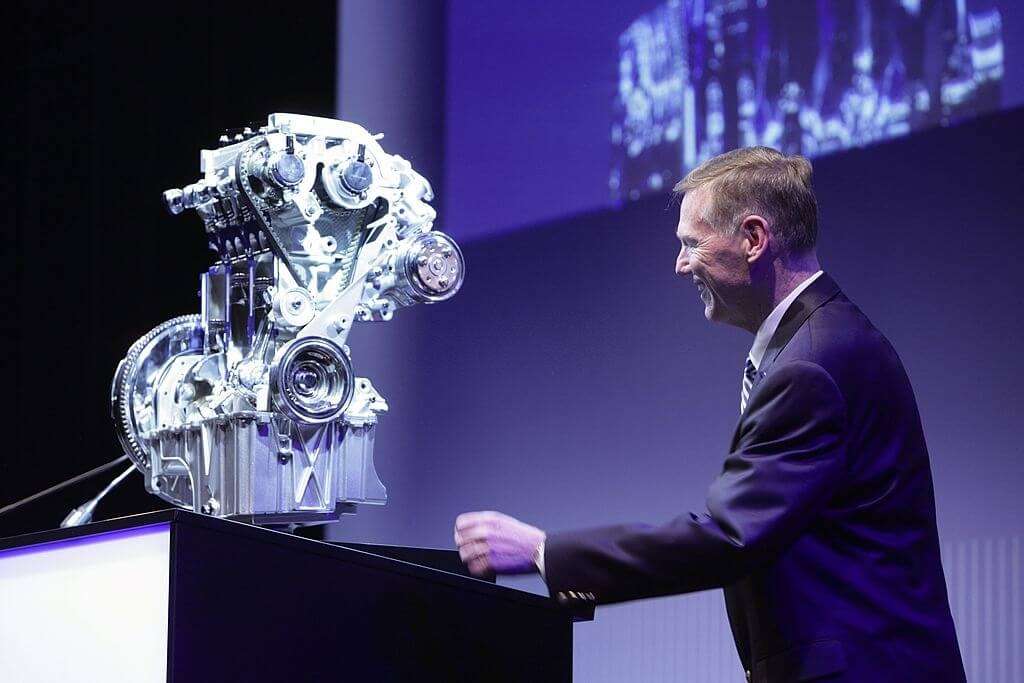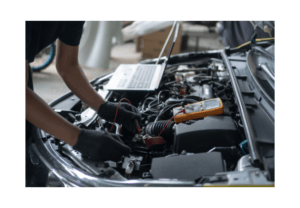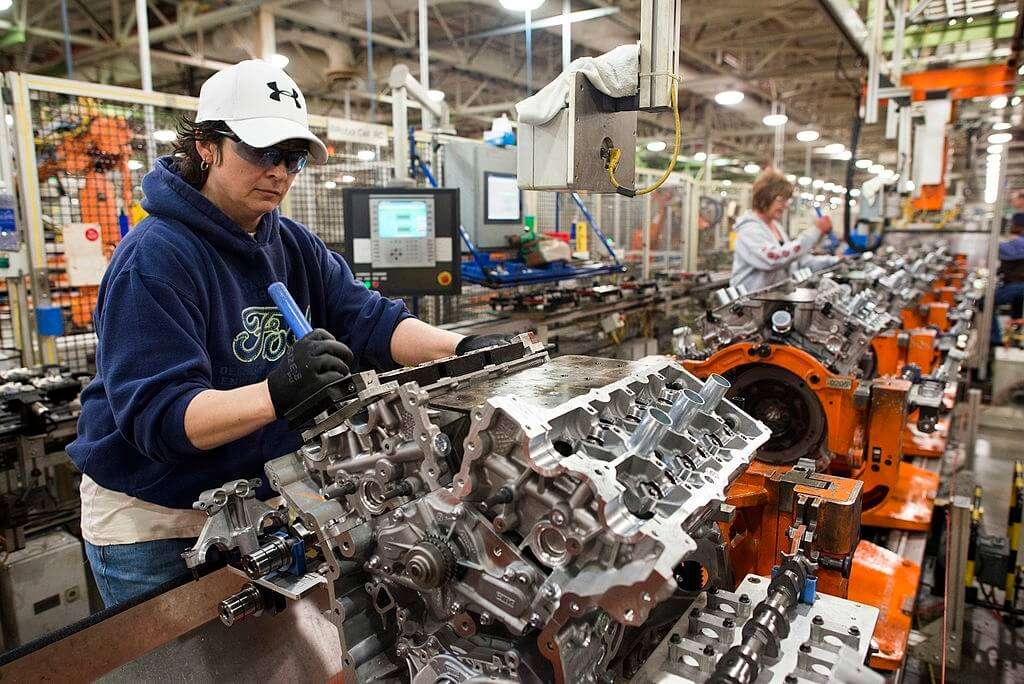Are you considering a Ford vehicle with an EcoBoost engine or already own one? Although these engines are known for their power and fuel efficiency, it’s essential to be aware of the potential problems with the Ford EcoBoost engines and their solutions. In this blog post, we will dive into the issues that may arise with Ford’s EcoBoost engines and provide you with the knowledge needed to keep your vehicle running at its best. Buckle up, and let’s get started!
Jump to
- 1 EcoBoost Engine Overview
- 2 Smaller EcoBoost Engines: Issues and Solutions
- 3 Four-Cylinder EcoBoost Engines: Challenges and Remedies
- 4 V6 EcoBoost Engines: Common Problems and Fixes
- 5 Maintenance Tips for EcoBoost Engines
- 6 EcoBoost Engine Updates and Improvements
- 7 Summary – Problems with the Ford Ecoboost Engine
- 8 Frequently Asked Questions
Short Summary
-
Ford’s EcoBoost engine range comprises three basic layouts with advantages in power, torque, towing, and efficiency.
-
Common issues such as coolant pipe failure, oil leaks, and overheating can be addressed through regular maintenance.
-
Ford is continuously investing in updates and enhancements for reliability & improved performance across all EcoBoost engines.
EcoBoost Engine Overview

Ford’s EcoBoost engines are a popular choice for drivers seeking power and fuel efficiency in their vehicles. Since their introduction in 2009, these turbocharged engines have been praised for their performance and reduced emissions. However, as with any engine, there are potential issues that can arise.
To better understand the issues, we must first familiarize ourselves with EcoBoost engine technology. These engines feature turbocharging and direct fuel injection to deliver increased power and torque while maintaining fuel efficiency. Despite their advantages, EcoBoost engines have experienced problems, including carbon buildup, which we will explore further in this blog post.
In this section, we will discuss the problems associated with three basic EcoBoost engine layouts: smaller engines, four-cylinder engines, and V6 engines.
Three Basic Layouts
The primary layouts of EcoBoost engines consist of the 3-cylinder 1.0L “Fox” engine, the 2.0L 4-cylinder engine, and the 3.5L EcoBoost engine. The 3.5L V6 engine, in particular, is known for its remarkable balance of power, torque, towing, and efficiency, making it an ideal choice for various Ford vehicles.
Ford has continuously worked on improving these engines over the years, addressing known issues and enhancing performance.
Vehicle Applications
EcoBoost engines can be found in various Ford vehicles, providing drivers with a fuel-efficient and powerful option. For instance, the 2.3L EcoBoost engine powers high-profile sports cars such as the Mustang EcoBoost, Focus RS, and Focus ST, as well as the Ford Ranger, Everest, Explorer, and several Lincoln models.
The 1.5L Dragon EcoBoost engine is featured in Ford Focus, Ford Fiesta ST, Puma ST, and Ford Bronco Sport. Understanding the challenges and remedies associated with these engines is essential for maintaining their longevity and performance.
Smaller EcoBoost Engines: Issues and Solutions
Smaller EcoBoost engines have encountered a few setbacks over the years. A notable recall was issued due to a coolant pipe failure in 1.0L EcoBoost engines manufactured between 2011 and 2013. Additionally, Ford Focus models with manual transmission from 2016 to 2018 have been reported to experience clutch fractures, leading to transmission fluid leaks. Fortunately, these issues have been addressed, and solutions have been implemented to rectify them.
As we explore these issues, it’s essential to keep in mind that newer EcoBoost engines generally have higher reliability. Ford has made continuous improvements to address concerns and enhance performance. In the following sections, we will discuss specific challenges and solutions for the different EcoBoost engine layouts.
Coolant Pipe Failure
The coolant pipe failure in smaller EcoBoost engines results from a design defect in the engine block and cylinder head, allowing coolant to seep into the cylinder. The nylon coolant pipe used in some models is prone to failure when exposed to high temperatures, leading to coolant leakage and engine overheating.
To address coolant pipe failure, it is recommended to replace the faulty coolant pipe with a new one and inspect the engine block and cylinder head for any signs of coolant leakage. Regular maintenance and monitoring of your engine’s health can help prevent such issues and keep your vehicle running smoothly.
Oil Leaks and Overheating
Oil leaks and overheating in smaller EcoBoost engines can be attributed to worn-out oil damaging the chain, guides, and tensioner, as well as coolant leaks leading to overheating. Timing chain problems can also cause oil leaks and overheating in these engines.
To identify and address oil leaks and overheating, it is essential to check the oil level, inspect the engine for coolant leaks, and listen for any unusual noises coming from the engine. Replacing worn-out oil, repairing coolant leaks, and replacing damaged parts can help rectify these issues and extend the life of your EcoBoost engine.
Four-Cylinder EcoBoost Engines: Challenges and Remedies

Four-cylinder EcoBoost engines are available in 1.5L, 1.6L, 2.0L, and 2.3L configurations and have faced their fair share of challenges. These engines have experienced problems such as exhaust manifold cracks, cylinder head gasket failures, and carbon buildup, affecting their performance.
In the following sections, we will discuss the specific challenges faced by four-cylinder EcoBoost engines and the remedies to address these issues, ensuring that your engine stays in top condition and performs at its best.
Exhaust Manifold Cracks
Exhaust manifold cracks are a common issue in four-cylinder EcoBoost engines, particularly affecting the 2.0L configuration. These cracks can cause a whistling noise from the engine, reduced performance, and exhaust fumes inside the vehicle.
The estimated cost of replacing a cracked exhaust manifold can be up to $1,000. It is crucial to address this issue promptly to prevent further damage to your engine and maintain a safe driving experience. Regular inspections and maintenance can help identify potential problems early and prevent costly repairs down the road.
Cylinder Head Gasket and Carbon Buildup
Cylinder head gasket failures and carbon buildup are another challenge faced by four-cylinder EcoBoost engines. Inadequate combustion of fuel is a potential cause of carbon buildup in these engines, leading to cylinder head gasket issues.
The potential effects of cylinder head gasket and carbon buildup include decreased engine performance, increased fuel consumption, and heightened emissions. To address these issues, it is essential to replace the cylinder head gasket and clean the carbon buildup. Regular maintenance and monitoring can help prevent these issues and keep your engine running at its best.
V6 EcoBoost Engines: Common Problems and Fixes
V6 EcoBoost engines, including the popular 3.5L configuration, have encountered issues such as blown head gaskets and timing chain problems due to lack of maintenance. Additionally, these engines have experienced carbon buildup around spark plugs and decreased performance due to moisture condensation.
In this section, we will discuss the common problems faced by V6 EcoBoost engines and their fixes, helping you maintain your engine’s performance and reliability.
Blown Head Gasket and Timing Chain
Blown head gasket and timing chain issues in V6 EcoBoost engines can be attributed to the stretching of the chains, failure of the VCT, and wear and tear on the guides, tensioners, and cam phasers. The most common cause of these issues is a lack of routine maintenance.
To address the blown head gasket and timing chain issues, it is recommended to replace the entire timing chain assembly. Regular maintenance, including oil changes and inspection of the engine components, can help prevent these issues and prolong the life of your EcoBoost engine.
Carbon Buildup and Moisture Condensation
Carbon buildup and moisture condensation in V6 EcoBoost engines can be traced back to the Charge Air Cooler (CAC) system, which cools the intake air from the turbocharger and results in condensation accumulation. Carbon buildup is likely due to incomplete combustion of fuel.
Common symptoms associated with carbon buildup in 3.5 EcoBoost engines include misfires, fault codes, rough idle, stuttering, and power loss. To address these issues, it is necessary to clean the carbon buildup and replace any damaged components.
Regular maintenance can help prevent carbon buildup and moisture condensation, ensuring optimal performance for your engine.
Also Read: Best Tuner for 6.7 Powerstroke
Maintenance Tips for EcoBoost Engines

Proper maintenance is crucial for ensuring the longevity and performance of your EcoBoost engine. Regular oil changes and lubrication, spark plug and ignition system care, and pre-purchase inspection from a mechanic are all essential maintenance tips for keeping your engine running smoothly.
In the following sections, we will delve into specific maintenance tips for EcoBoost engines, helping you keep your vehicle in top condition and extend its life.
Oil Changes and Lubrication
Regular oil changes and lubrication for EcoBoost engines offer enhanced protection against engine wear and tear, improved fuel efficiency, and extended drain intervals. The recommended oil for a 3.5 EcoBoost engine is SAE 5W-30.
Consistent oil changes can enhance engine performance, prolong engine lifespan, and maximize fuel efficiency. Insufficient engine lubrication can result in increased fuel consumption. It is essential to follow the recommended maintenance schedule for oil changes and lubrication to ensure the best performance and longevity for your EcoBoost engine.
Spark Plug and Ignition System Care
Due to increased turbo boost pressures and a greater number of components, the spark plugs and ignition coils of an EcoBoost engine require more frequent maintenance. It is recommended to replace spark plugs for stock 3.5 EcoBoost engines every 40,000 to 60,000 miles. This will ensure optimal performance and fuel economy.
If your 3.5 EcoBoost engine is experiencing misfires, it is suggested to replace all six spark plugs or ignition coils simultaneously. Proper spark plug and ignition system care can help prevent engine issues and maintain optimal performance for your EcoBoost engine.
EcoBoost Engine Updates and Improvements
As with any technology, Ford has continuously worked on improving its EcoBoost engines over the years. Newer EcoBoost engines are generally more reliable, and ongoing updates and enhancements have been made to address known issues and improve performance.
While specific updates and improvements for 2023 are not available, Ford’s commitment to enhancing its EcoBoost engines ensures that drivers can continue to enjoy the benefits of power and efficiency in their vehicles.
Smaller Engine Reliability
The reliability of smaller EcoBoost engines, such as the 2.7L and 3.5L V6 engines used in the Ford F-150, has been a primary focus for Ford. While specific updates and improvements for smaller engines in 2023 are not available, the Ford F-150 offers a range of engine choices that provide power and towing capacity for drivers.
Regular maintenance and monitoring can help ensure the reliability and performance of these engines.
Larger Engine Enhancements
Larger EcoBoost engines, such as the 3.5L V6, have seen enhancements in power and efficiency over the years. While specific updates and improvements for 2023 are not available, Ford’s ongoing commitment to enhancing its EcoBoost engines ensures that drivers can continue to enjoy the benefits of power, fuel efficiency, and reduced emissions in their vehicles.
Summary – Problems with the Ford Ecoboost Engine
In conclusion, Ford’s EcoBoost engines offer drivers a powerful and fuel-efficient option for their vehicles. However, it is essential to be aware of the potential problems and solutions associated with these engines. By understanding the challenges faced by smaller, four-cylinder, and V6 EcoBoost engines, and following proper maintenance tips, you can ensure the longevity and performance of your engine. With Ford’s commitment to continuous improvement, we can expect to see ongoing enhancements and updates to EcoBoost engines, providing drivers with an even better driving experience.
Frequently Asked Questions
Are Ford EcoBoost engines reliable?
Overall, Ford EcoBoost engines have been found to be reliable and well-performing. There is evidence of small issues occurring from trying to improve the already functioning design, but with proper maintenance and care these are often easily addressed.
Thus, one can conclude that the Ford EcoBoost engine is reliable.
What years did the EcoBoost have problems?
The 3.5L EcoBoost V6 engine may have experienced issues in the 2011-2012 and 2010-2014 F-150 models due to condensation trapped in the intercooler or timing chain scratches.
These issues can cause a decrease in engine performance, as well as a decrease in fuel economy. In some cases, the engine may even stall or fail to start. To address these issues, Ford has issued a recall for the affected vehicles.
The recall includes a free inspection and repair.
What years to avoid 3.5 EcoBoost?
To avoid the most unreliable EcoBoost models, it’s best to steer clear of 3.5 EcoBoosts from 2011, 2013, and 2015.
Also, be aware that 2010 to 2014 3.5-liter models may have timing chain issues. To stay safe, it is best to avoid these EcoBoost years.
Why was the EcoBoost engine discontinued?
Therefore, Ford India has made the decision to discontinue the EcoBoost engine after April 2020 due to the rising cost of upgrades required for meeting the upcoming BS6 emission norms and lackluster sales due to its hefty price tag and poor fuel efficiency.
The cost of upgrades and the hefty price tag has made the EcoBoost engine a less attractive option for consumers. Furthermore, its poor fuel efficiency has also been a major factor in its lackluster sales.

My name is Tom Harris, founder of this blog. I’m a mechanical engineer with 20 years of experience in the automotive industry. I’m here to help you with your vehicle’s problems, easy fixes and share my insights and experience so that you can enjoy your rides more.

